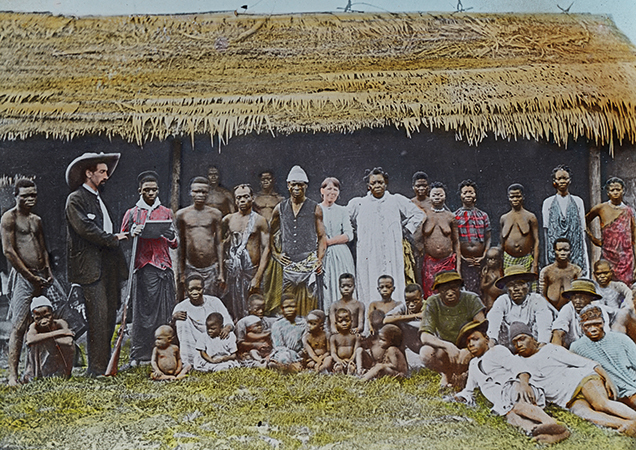
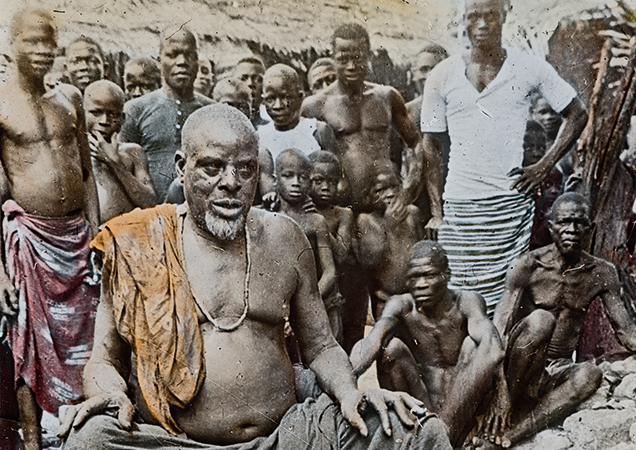

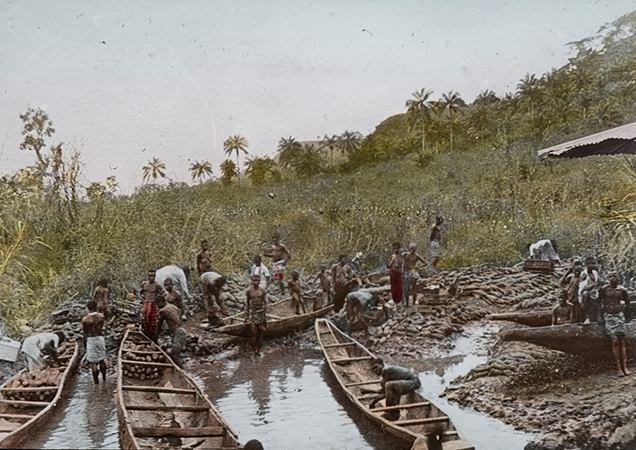
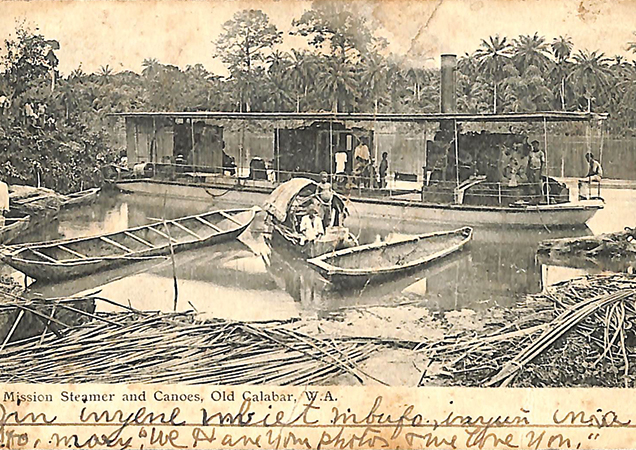
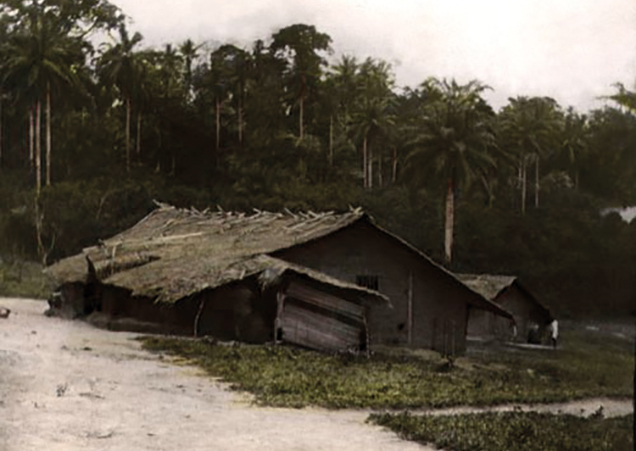
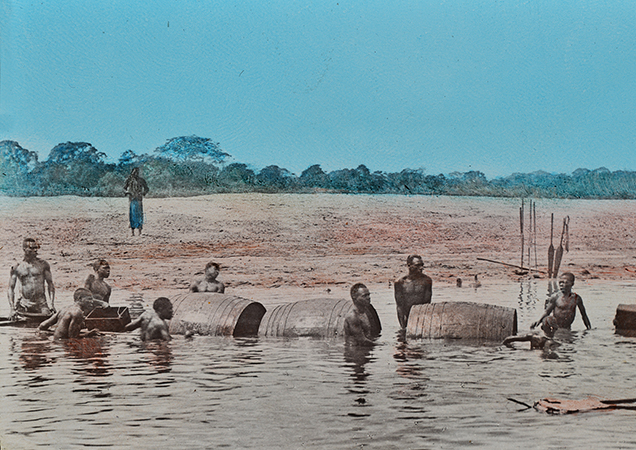
Dundee City Council, Dundee Art Galleries & Museums: Mary Slessor with some of the people of Ekenge, including Ma Eme and Chief Edem, and another missionary
Dundee City Council, Dundee Art Galleries & Museums:
A Calabar Chief at Palaver (tribal meeting to resolve local issues)
Dundee City Council, Dundee Art Galleries & Museums:
Mary Slessor presiding at native court session
Dundee City Council, Dundee Art Galleries & Museums: Canoes being loaded
Dundee City Council, Dundee Art Galleries & Museums: Mission steamer
Dundee City Council, Dundee Art Galleries & Museums: The court house at Ikotobong
Dundee City Council, Dundee Art Galleries & Museums:
Loading boats with casks of palm oil, Old Calabar.
6 - 7
<
>
After returning from her first furlough in 1880, Mary was sent to Old Town in Calabar a few miles from Duke town. From then on she proceeded to work in increasingly remote villages up river, setting up new missions and building churches and schools. As the only missionary in these areas, she was helped by the local people to build mission houses but often lived in very basic mud huts sleeping on the floor surrounded by her children and others she had rescued and their mothers.
One of the ways in which Mary tried to improve the lives of the villagers in the communities in which she lived and worked, was to encourage the tribes to trade with each other instead of fighting. Her skill in speaking Efik, which was the main trading language, meant that she could converse easily with local leaders and discuss the benefits of trade.
Dundee City Council, Dundee Art Galleries & Museums: King Eyo Honesty VII of Creek Town. A Christian, he welcomed the European missionaries and traders.
He became a friend of Mary, advising her on local issues and providing her with his own canoe and rowers for river transport.
She contacted King Eyo VII in Creek Town and asked him to invite a delegation of tribesmen from Okoyong to come and discuss the possibility of trading their palm oil and other produce. Considerable discussion was needed to persuade the Okoyong chiefs to leave their weapons behind before embarking on the visit, which they eventually agreed to as long as Mary came along as well.
Chiefs became aware of the benefit of their people being able to speak English to trade more widely and so numbers in her classes increased to learn ‘Book’ as they called the bible teaching. This was not necessarily to be able to learn the bible, but to be able to negotiate with traders from other countries in Calabar port.
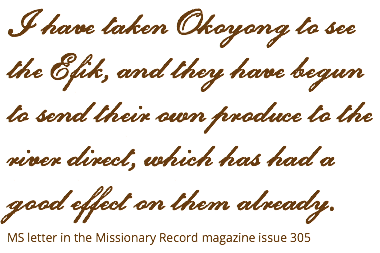
Scottish Charity No. SC032781
© Mary Slessor Foundation 2016